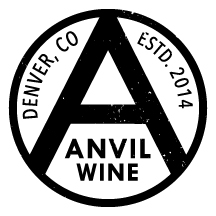Hild
The Upper Mosel
The Upper Mosel, or “Obermosel” in German, has nothing to do with Riesling and nothing to do with slate. Instead, we find limestone. The Obermosel in fact represents the beginning of the Paris Basin, the geological reality that informs places like Chablis and Sancerre. Instead of Riesling, in the Obermosel we find a winemaking culture based on one of Europe’s oldest grapes - Elbling.
Even at its best, Elbling is not a grape of “greatness” as much as it is a grape of refreshment and honestly and conviviality. The comparisons are plenty, though none of them are quite right: If Riesling is Pinot Noir, then Elbling is Gamay. If Riesling is Sauvignon Blanc, then Elbling is Muscadet. You get the idea.
The joy of Elbling is the uncompromising vigor and energy, the raucous and super-chalky acidity. Matthias Hild, who farms about five hectares in the sleepy town of Wincheringen, told me that back in the 1980s, when he’d have an Elbling clock in at less than 8.5 grams acid, he’d taste it and question if it was Elbling at all.
Matthias Hild reminds one of Randal Graham, the famous founder/winemaker of Bonny Doon, in his eclectic mix of scholar, advocate, farmer and trickster. He also sports a thinning pony tail and takes everything at his own pace and on his own terms. This strength of character likely explains some of how Hild has survived in the Obermosel making quality-minded, honest wines in a region where this is not a financially wise thing to do.
The fact that Matthias is single-handedly trying to save the old, terraced parcels of Elbling (see photo above) is a move that is equal parts romantic and completely insane. The financial realities of working these vineyards by hand while accepting their lower yields simply do not add up. This is an act of cultural preservation more than anything else. He calls the wine “Zehnkommanull” which means simply 10% — the wine always ferments bone dry and is 10% ABV or less. The few cases that we’re able to get of this wine are, to us at least, semi-sacred voices of a time long past. Sacred voices that end up on the $20-and-under table and most often overlooked. Hopefully this will change.

